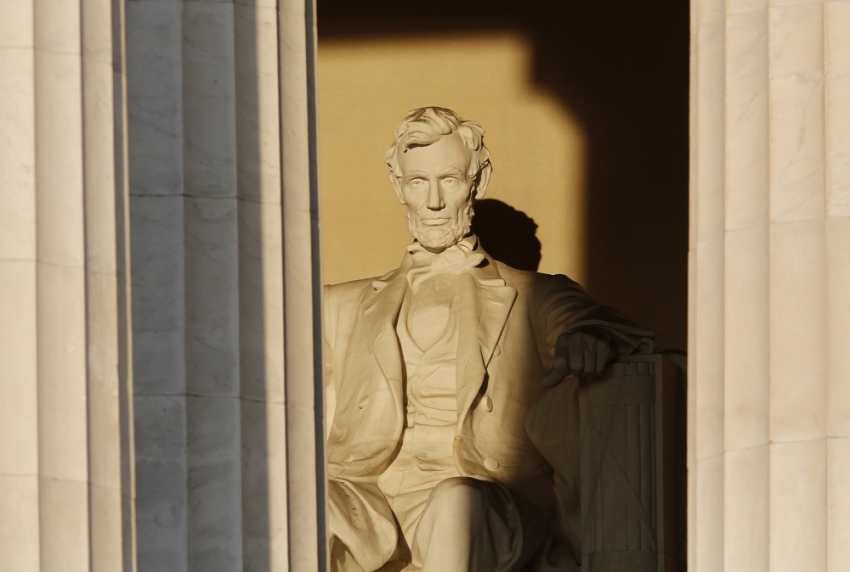One nation, two parties, under gods

In his Second Inaugural Address, President Abraham Lincoln said, “Both read the same Bible, and pray to the same God; and each invokes His aid against the other.” He was acknowledging that both sides in the Civil War, anti- and pro-slavery advocates, were Christians (specifically Protestant) who used faith to justify their politics.
In today’s politics, many assume that faith is the realm of the right; but now the Democratic party is trying to change that. From talking about God with Iowan voters to appointing Rev. Derrick Harkins as director of “faith engagement” for the Democratic National Committee, the new Democratic strategy appears to be an appeal to the nation’s believers. As Democratic Senator Chris Coons explained, “There is a misperception in middle America that the folks who are religious and elected are Republican, and the folks who are Democrats and elected are not [religious].”
American Christians have a long track record of appealing to God to underwrite the nation’s endeavors near and abroad. The seminary where Harkins worked before joining the DNC, Union, was an important voice in adapting Christianity to modern society (called modernism). That adjustment also coincided with the mainline Protestant churches’ support for Progressivism’s platform – prohibition, women’s suffrage, opposition to child labor, assimilation through public schools. God’s ways, for many in the mainline, were on the side of progress. Evangelicals and the religious right came later. With Ronald Reagan, conservative Protestants also identified the nation with God’s purposes. They did so in part because liberal Protestants (mainline) had during the Vietnam War and Civil Rights movement become critical of the nation. When the nation’s policies did not look so great, churches had more room to talk about God’s standing over America in judgment.
Before the division between evangelicals who believed God to be on America’s side and liberal Protestants who thought nation had abandoned God, both had warmly embraced the Cold War platform that the United States was, as the Pledge of Allegiance was revised to say, “Under God.” In fact, during the 1950s, the pull of civil religion was so strong that President Dwight D. Eisenhower could say without embarrassment or contradiction from clergy, “our form of government has no sense unless it is founded in a deeply felt religious faith, and I don't care what it is.” “With us of course it is the Judeo-Christian concept,” he explained, “but it must be a religion with all men are created equal.” For both parties and both sides of American Protestantism, God and the United States were rightly opposed to godless Soviet Communists.
Since the 1960s that consensus has evaporated. Lincoln’s description of the United States in 1864 seems more apt today than Eisenhower’s. To say that both sides, Republicans and Democrats, pray to two gods may be an overstatement. But plausible is the assertion that one side believes God is on the side of American greatness, and the confesses that God sides with the victims of American power and wealth. Put another way, one side believes America should adhere to God’s standards for sex and the family, the other confesses that God’s love is evident in all forms of sexual diversity.
Another difference from the 1950s Cold War consensus is that Protestants are no longer the major players in faith-based politics. According to the Pew Forum, the United States is still overwhelmingly Christian in its demographics. Roughly forty-five percent are Protestant (evangelical 25, mainline 15, black church 6). But Roman Catholics, at twenty-one percent of the populace, are arguably a louder voice in public life than any Protestant group. Meanwhile, the rise of nones, those who are “nothing in particular” religiously, has revealed a demographic (15%) almost as big as mainline Protestants.
These changes in American religion challenge the idea that the 2020 election is a contest between the Democrats’ and Republicans’ faiths or gods. Today’s United States may not be ancient Rome with its pantheon of gods, but it is hardly the Judeo-Christian America that in 1956 welcomed the addition “In God We Trust” to its currency.
Missing almost entirely from Democratic and Republican religious rhetoric, though, is Lincoln’s sober estimate of God’s relationship to the United States. For the president, and a handful of theologians, God transcends political and national causes. The phrase “do not immanentize the eschaton” (or don’t bring heaven down to earth) is another way of saying that God’s ways are not humankind’s ways. As Lincoln put it, “The prayers of both could not be answered; that of neither has been answered fully. The Almighty has His own purposes.”
America’s boundless optimism about its capacities for a great society and positive influence in the world has obscured Lincoln’s sense that God does not conform to a nation’s ideals or assumptions. If the Democrats succeed in attracting faith-based voters, the strategy will not change the Psalmist’s warning: “It is better to take refuge in the Lord than to trust in princes.” Or Presidents.



























